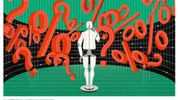Chubb, the largest US non-life insurer by market capitalisation, has approached rival Hartford Financial Services Group with an unsolicited $23.2bn takeover offer, in what could be the first mega-deal in an industry battered by losses stemming from the coronavirus pandemic.
James Fontanella-Khan & Oliver Ralph FT
Even before the pandemic McKinsey reported that only the top quintile of insurers actually made an economic return on capital. That means 80% of global insurers chasing a long tail of unprofitable business.
You can see the attraction of Hartford for Chubb as the hardening market pushes up premiums in commercial insurance. Chubb less attractive a proposition for the Hartford maybe as the article implies.
In the longer term voices like L&G's Chief Innovation Officer Maarten Ectors point to the vulnerability of incumbent insurers as risks become more unpredictable (like Covid-119 in 2020) and, therefore, the traditional underwriting strengths of insurers and reinsurers less a competitive advantage. Writing good risk has benefitted from decades of data but by definition Black Swan events have no predictive data even if voices in the wild did warn of the COVID threat.
Ectors writes
"Risk without data
Many financial institutions have products which are heavily impacted by risk. Mortality risk for life and pension. Risk of inflation, default, fraud and security incidents for lending and investment. Accidental risk for car, home and business insurance. In a world where risk can change overnight, e.g. a global pandemic, the existing actuarial models based on 30 years of data no longer are valid. A simple Tweet, e.g. Elon Musk, or Reddit post, e.g. GameStop, can have enormous market effects. Smaller companies will launch exponentially more products which will need loans and insurances. Index-based and national debt investments will become a lot more risky. Tokenising risk and packaging it up in small time-bound slices will become possible, e.g. a risk token representing 100 robot taxis in London today provoking a mortality with a maximum exposure of £10M. These risk tokens can be offered on distributed exchanges where they are valued and sold to the highest bidding high-frequency trading professional investors. Climate change risk and opportunities can be tokenised. Political risk can be tokenised. Even Tweet risks can be tokenised. The world of finance will look totally different in a tokenised economy where new risks can be tokenised, valued and traded in seconds
."
No wonder Chubb casts a covetous eye at The Hartford. And maybe many another C-Suite doing the same around the world if insurance.
The future is unclear. The only certainty is that risks will become more volatile and disruption more frequent. In a world with less certainty, innovation will be more important than ever. The risk of failure will be higher for older products. At the same time the pay-outs for successful new products will be shorter for which more of them need to be launched. Institutions with colossal departments of specialists in a limited number of traditional cash cows and without a large pipeline of new products, might not be best positioned for these changes. More nimble setups with lots of ventures and products which either cheaply fail or get scaled-up fast combined with high-levels of automation, are a better recipe for financial success. Executives with proven fast innovation skills versus many years of experience in a limited set of products, will be in higher demand. Economies of scale through branches/call centres/advisors and departmental efficiency will make room for small teams finding market fit cheaply and scaling up future ventures quickly. The finance industry has never been so exciting as today...
Further Reading
Digital Transformation and Disruption: the future of finance
Maarten Ectors
How to win in insurance: Climbing the power curve
McKinsey
The rise of the exponential underwriter
Deloitte Insights
Chubb, the largest US non-life insurer by market capitalisation, has approached rival Hartford Financial Services Group with an unsolicited $23.2bn takeover offer, in what could be the first mega-deal in an industry battered by losses stemming from the coronavirus pandemic.
https://www.ft.com/content/a4841ac6-5efc-448c-a8c1-dcf567dcb8ab








